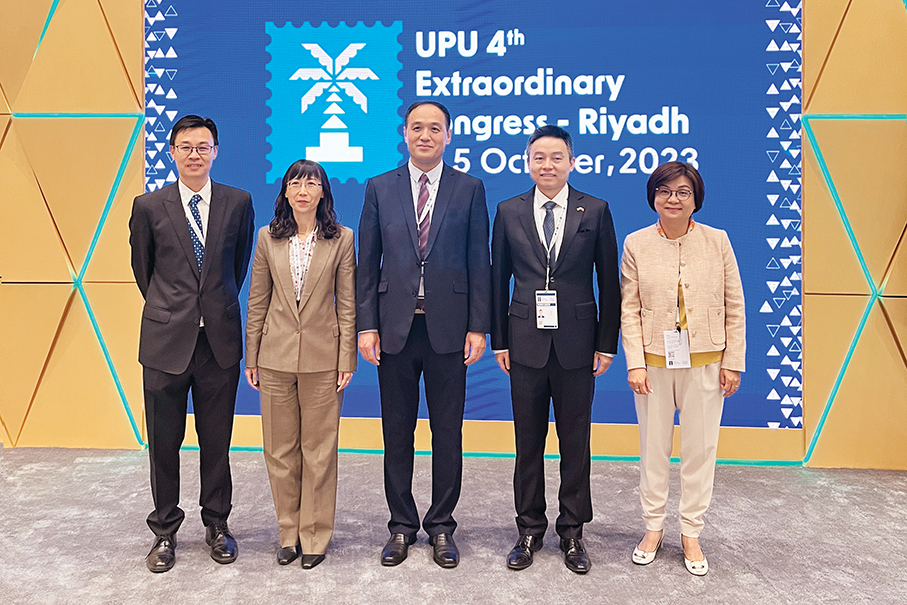Editorial
Hope is perhaps the most archetypal human trait but it must be a realistic aspiration based on an analytical process that faces hard facts and eschews wishful thinking.
Realistic hope is the right way vis-à-vis the announced and expected policies of US President Joe Biden and the ongoing fight against COVID-19.
For us in Macau, Biden’s future China policy is of paramount importance. Macau is an inalienable part of China and that’s why we in Macau can only hope – tempered by a healthy dose of realism – that China-US relations will get back on an even keel the sooner the better.
The point is that Sino-American relations are the world’s most important bilateral relationship. That’s a fact. The EU plays in the second league of international relations. And that’s why it’s in the interest of all the other countries that relations between Beijing and Washington are as cooperative and amicable as is possible between two countries whose socio-political systems are VERY different.
Biden published an article headlined “Why America Must Lead Again” early last year. What he meant, of course, was that the US must lead the whole world again, not just the West. Sorry, but that’s a fallacy. What the world urgently needs is not the leadership by one particular country (anyhow, isn’t it ludicrous to believe that nowadays one country can “lead” the international community that consists of nearly 200 states) but a global partnership of nations with starkly different political, economic, social and cultural backgrounds that are committed to tackle the many problems that the Blue Planet is facing, such as pandemics, climate change and poverty. Mother Earth’s problems are simply too severe – right now they are actually life-threatening – and pressing that they could be tackled by 19th and 20th century power politics. We are all sitting in the same boat, but we – individuals and countries – all bring our own political, cultural and religious baggage on board. President Xi Jinping’s aim of building a shared community for humanity is a move in the right direction. I would like to see other national leaders come up with similar visions for our globe’s future. International relations ought to be based on dialogue, discussion and debate – the 3 Ds of sensible global governance.
Former US secretary of state Henry Kissinger told a forum hosted by Bloomberg in November that the Biden administration should move quickly to restore lines of communication with Beijing that frayed perilously under his predecessor, or risk a crisis that could escalate into military conflict. The 97-year-old doyen of the United States’ China policy suggested that one should “look at COVID as a warning, in the sense that in practice it is dealt with by each country largely autonomously, but its long-term solution has to be on some global basis,” adding that “it should be dealt with as a lesson.”
Kissinger said that fellow Republican Donald Trump, who at that time was still in the White House, had “a more confrontational method of negotiation than you can apply indefinitely.”
Obviously.
Kissinger also urged caution about the idea – which seems to be increasingly popular by politicians in some EU member states – of building a coalition of Western democracies to “take on” Beijing.
“I think a coalition aimed at a particular country is unwise, but a coalition to prevent dangers is necessary where the occasion requires,” the elder statesman said.
So let’s be hopeful but realistic that China-US relations will gradually improve under Biden. We can expect at least a change in tone, i.e. much less blustering and shrillness. Whether the relationship will also change substantially, at least in the medium term, remains to be seen.
Many in Macau will certainly watch the development of Sino-US ties under Biden with keen interest. US government relations with Macau go back to the mid-19th century. In 1844, the Qing Dynasty signed with the United States in Macau one of its infamous unequal treaties, euphemistically called Treaty of Peace, Amity and Commerce, at Kun Iam Temple.
Pan American Airways’ legendary “flying boats” plied the San Francisco-Macau route across the Pacific in the 1930s which put Macau on the international aviation map decades before its airport opened in 1995. However, the fuel depot at Macau’s Naval Aviation Centre in the Outer Harbour was bombed by the US Air Force in 1945 because someone in Macau was allegedly planning to sell aviation fuel to Japan.
Since Macau liberalised its gaming industry in 2002, half of the special administrative region’s six gaming operators have been US companies – Sands, Wynn and MGM – which have helped overhaul the city’s nearly two-century-old licensed gaming industry and very successfully introduced the integrated resort concept to Macau. I am quite sure that also most of our American fellow residents are hoping for China-US ties to return to a dignified and civilised level worthy of the world’s foremost bilateral relationship.
Let’s keep our fingers crossed – filled with hopeful realism.
– Harald Brüning






